LATEST NEWS
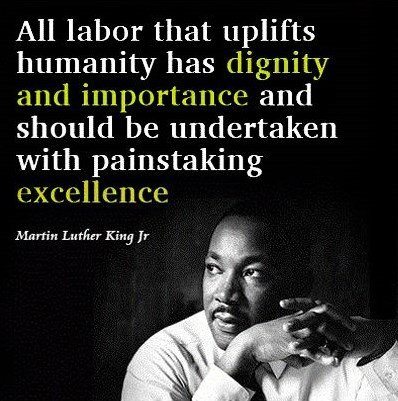
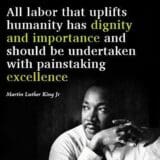
Last year, as we remembered the life and legacy of Reverend Dr. Martin Luther King, Jr., we focused much of our attention on the 50th anniversary of the March on Washington for Jobs and Freedom. We reflected on the historical words that followed, “I have a dream” and reaffirmed our commitment to keeping the dream alive.
We measured our progress through victories such as the end of Jim Crow segregation, the passage of the Civil Rights and Voting Rights Acts, and the election of our first African American President. We also talked about where we need to devote our efforts for the dream to become a reality.
With that, one year later we are reminded of the inequalities that still exist and the call to action we must all answer:
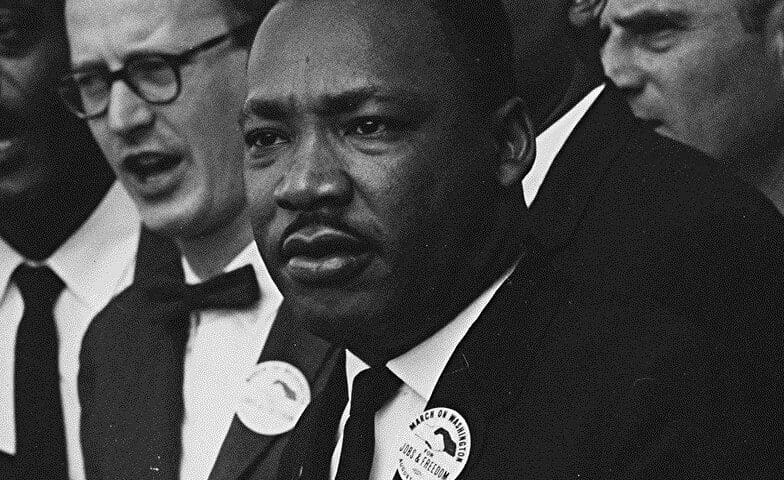

“I’m not in despair, because I know that there is a moral order. I haven’t lost faith, because the arc of the moral universe is long, but it bends toward justice.”


We all know the political shorthand: “red” states vote conservative while “blue” states vote progressive. But these days the deep red hue of Idaho, Arizona and Texas isn’t just a reflection of their political leanings; it’s all the red flags voters are raising about private prisons in those states.
In 1997, Corrections Corporation of America (CCA) took over the Idaho Correctional Center. Predictably, the facility was soon plagued with rampant violence, understaffing, gang activity and contract fraud committed by CCA. One former inmate said the facility was so violent that it was commonly referred to as “gladiator school.” What’s more, in 2012 the Associated Press showed that taxpayers didn’t even get the savings they were promised.
This month, tired of the bad headlines, Idaho Governor Butch Otter – a strong proponent of outsourcing – announced that the state is taking back control of the privately run prison.
» Read more about: States Are Regretting Prisons for Profit »

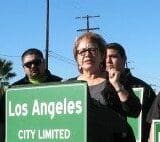
There was a time when we listened to science, leaned forward when its experts spoke about smoking, clean air and water, or the need for something called a seatbelt. But that was long ago, before corporate interests convinced us that the best policy for just about any social crisis was to do nothing. Today research surveys that statistically demonstrate the benefits of raising the minimum wage have about the same chance of being heard above the denial din as climate change papers.
Nevertheless, the authors of Effects of a Fifteen Dollar an Hour Minimum Wage in the City of Los Angeles, a new study conducted by the Economic Roundtable and funded by the Los Angeles County Federation of Labor, hope to open some very closed minds about these economic benefits. Tuesday the two groups released the study at a media event held on a corner of Lafayette Park.
» Read more about: 7.6 Billion Reasons to Raise L.A.’s Minimum Wage »
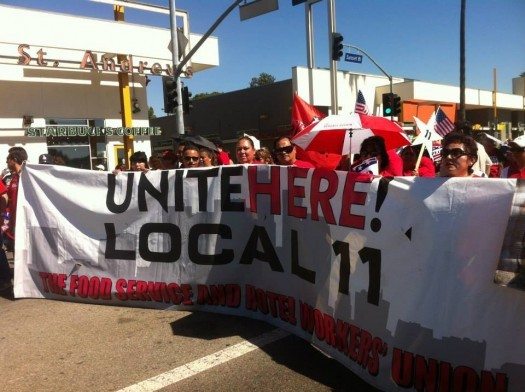

Today’s Los Angeles Times features front-page coverage of the Raise LA campaign, a new effort to improve the standard of living for workers employed by L.A.’s larger hotels. James Rainey’s piece, which appeared online late yesterday (as did a story on Raise LA by Nancy Cohen in The New Republic), noted that while a relatively small number of L.A. hotel workers enjoy the protections and benefits of union membership, most of the city’s hotel housekeepers, busboys and maintenance workers are mired in jobs that pay little more than California’s minimum wage of $8 per hour. Raise LA aims to create an hourly minimum wage of $15.37 for employees who work at hotels with of 100 rooms or more.
In 2012 Long Beach voters passed a similar law for its hotel workers, increasing their minimum wage to $13 an hour.
» Read more about: Minimum Wage Battle Checking in to L.A. Hotels »


“Happy New Year!” is the salutation we use to greet each other around the turn of every year. We talk as if what is past has disappeared in the rear view mirror and that what’s ahead will be brand new, novel and something completely different. In newspapers, blogs, magazines and cartoons, we survey the events of the year past and make predictions about the year ahead.
In reality not much ends on December 31st except the calendar hanging in our kitchen. Instead, the issues of one year carry over into the next. The behaviors of one year become the practices of the next. In the real world, matters of conflict and tension continue over years, even over decades.
This is the baggage that we’ll continue to carry with us in the new year:


Late Monday afternoon California Attorney General Kamala Harris released the state’s official title and summary for the ballot initiative promoted by San Jose Mayor Chuck Reed and others to reduce the retirement benefits of state and municipal workers. Harris’ wording had been anxiously awaited by Reed and his colleagues. In 2012 a different group of pension-cutters abandoned their measure, according to the Sacramento Bee, after they tested Harris’ summary and found it would make their measure radioactive at the polls.
Reed had called his proposal the Pension Reform Act of 2014 and, no doubt, had his fingers crossed that it would appear that way on a future ballot. If so, he was in for a disappointment, as the attorney general rebranded the measure as the less lyrical Public Employees Pension and Retiree Healthcare Benefits Initiative Constitutional Amendment. To the pension-cutters’ further chagrin, Harris’ description placed teachers,
» Read more about: Can Chuck Reed’s Pension-Cutting Campaign Get Off the Ground? »


The holiday interlude brought a mixed blessing from Seattle —that’s the positive spin, frankly—in the form of King County Superior Court Judge Andrea Darvas’ ruling in the SeaTac minimum wage case. The complaint, officially named BF Foods v. City of SeaTac, concerns Proposition 1, a ballot initiative adopted by the voters of the City of SeaTac last November, that raised wages to $15 an hour for airport and hotel workers.
Opposition to the measure was rather heated, as opponents sued to keep the matter off the ballot. Having failed in that endeavor, they spent big money to defeat it. Having lost, a recount, which did not change the results. After which, this suit.
The main litigant, according to press reports, is Alaska Airlines; they cleverly brought in the Port of Seattle, which runs the airport. The legal approach here was something of a kitchen sink strategy,
» Read more about: SeaTac Minimum Wage Law Faces Catch-22 Hurdles »


At a time when public sector workers and their unions are under constant attack, the heroic work of women and men who serve other people as a mission in life is often overlooked. The labor movement and Los Angeles lost a giant among these heroes with the recent passing of Eddie Reed. “Mr. Reed,” as I would always call him, lived the very definition of a public servant. For 34 years he helped the children and families of Los Angeles as a bus driver with the Los Angeles Unified School District.
“Bus driver,” however, is too narrow a description of the man and his mission. Mr. Reed was a leader who fought on behalf of a group of workers who were historically forgotten or marginalized whenever major decisions were made in the school district. He was a mentor to students, parents and employees, constantly reminding all of us that we have an obligation to serve those who have less or who struggle to find justice.
» Read more about: Eddie Reed: The Passing of a Labor Hero »
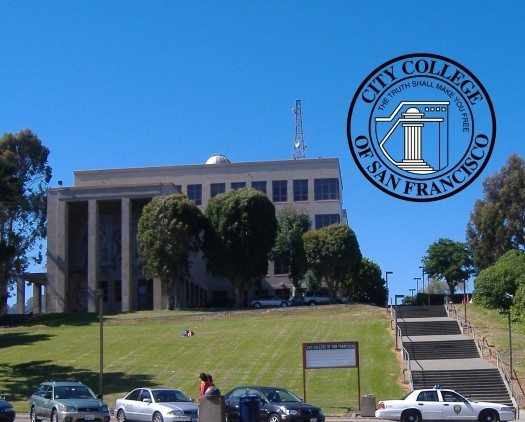

The battle to keep City College of San Francisco open and accredited took a dramatic turn late Thursday afternoon. San Francisco Superior Court Judge Curtis Karnow temporarily barred the Accrediting Commission for Community and Junior Colleges (ACCJC) from revoking accreditation for the 79-year-old school that serves about 80,000 students at 11 San Francisco campuses. The ACCJC, the agency charged with evaluating California’s 112 community colleges, had sought to revoke CCSF’s accreditation by July 31; it was challenged by several lawsuits filed by San Francisco’s City Attorney and a pair of teachers unions.
Judge Karnow, while dismissing the unions’ suits, ruled in favor of the city attorney’s request for a temporary injunction against the accreditation revocation, declaring that CCSF’s shutdown would be too extreme a response to the ACCJC’s findings of administrative deficiencies at CCSF. “Those consequences would be catastrophic,” Karnow said of a shutdown.
Lawyers for the ACCJC unsuccessfully argued for a dismissal of all challenges to its institutional authority and expertise in determining accreditation standards.
» Read more about: Fight to Save City College of San Francisco Will Go to Trial »


When future taxpayers look back to the moment they started taking back control of their schools, roads and services, they will look to 2013. From coast to coast, taxpayers rejected reckless outsourcing schemes. They held for-profit corporations accountable. And they said “no deal!” to CEOs who would put profits ahead of public health and safety.
These victories don’t always appear in the national media. But taken together they represent a real shift. Working together, I’m sure we will have many more in 2014.
Connecticut: Opponents of education privatization defeated three Bridgeport school board members who supported pro-charter schools superintendent Paul Vallas.
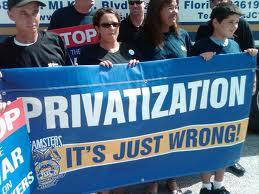 Idaho: Corrections Corporation of America left the state “after more than a decade marked by scandal and lawsuits surrounding its operation of the state’s largest prison.” Upon hearing the news, Spokesman Review columnist Shawn Vestal wrote,
Idaho: Corrections Corporation of America left the state “after more than a decade marked by scandal and lawsuits surrounding its operation of the state’s largest prison.” Upon hearing the news, Spokesman Review columnist Shawn Vestal wrote,
» Read more about: Outsourcing Wars: What the New Year Can Learn from 2013 »
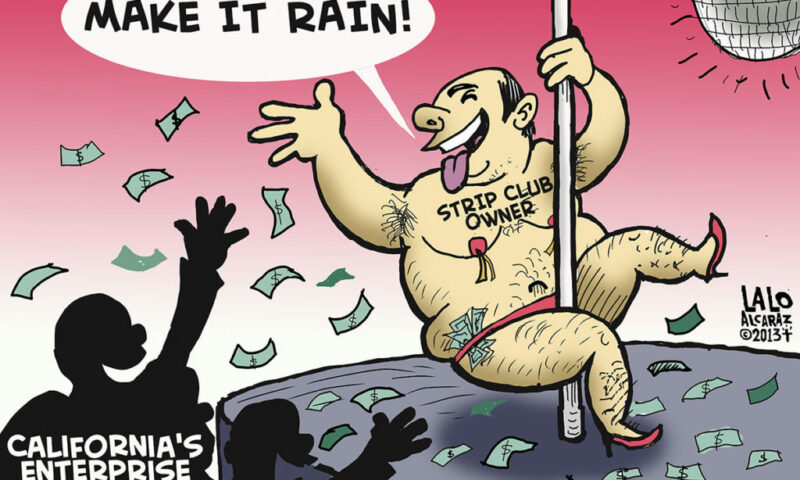

Illustration by Lalo Alcaraz. (Click image twice for full size.)
See Gary Cohn’s reports on California’s enterprise zone program and the tax credits received by two Sacramento strip clubs.
» Read more about: Lalo Alcaraz on State’s Enterprise Zone Program »


You have to hand it to conservatives — when they don’t like what they see in the mirror, they investigate the mirror-maker. Likewise, if they get knocked to the ground — as, say, the way they did in the 2012 elections — they just get up and say the exact same things that got them decked in the first place. Looking at the following quotes from the past year can give a reader the impression that, for some people, 2012 never happened — or 2008, for that matter.
People with conventional views must repress a gag reflex when considering the mayor-elect of New York — a white man married to a black woman and with two biracial children.
— Richard Cohen, Washington Post columnist
Wanting a white Republican president doesn’t make you racist, it just makes you American.


Before Capital & Main emerged from our earlier blog, Frying Pan News, writers Vivivan Rothstein and Steven Mikulan took in a movie now and then. Here are excerpts from some of their 2013 reviews.
12 Years a Slave Towering profiles of moss-hung oaks, silhouetted against languid Southern sunsets, form some of the indelible images from Steve McQueen’s new film. So too do gruesome close-ups of the scarred backs of antebellum slaves, whose skin has hardened to bark by years of whippings. This is the central visual paradox in 12 Years a Slave, which contrasts quiet moments of primeval, pastoral beauty with the loud, primitive violence practiced by plantation owners. (Steven Mikulan)
Go Public I wanted to cry after watching Go Public: A Day in the Life of an American School District.


The Anti-Eviction Mapping Project (AMP) was formed to show how speculators target Bay Area communities — and, in our small way, to assist in affecting change. The volunteer AMP collective grew from tangential connections of concerned strangers in April, 2013. Four core members—Erin, Julia, Olivia and myself—have expanded to 12 and counting. We share a deep concern for the growing displacement of our friends and neighbors, yet as individuals, we were initially unsure how we could participate in stopping it.
AMP’s members have varying strengths in data analysis, research, web design, programming and direct action which all complement each other. We hope that our maps and digital storytelling can de-isolate the victims of no-fault eviction and also serve as tools for collective resistance.
San Francisco, like most large cities, is predominantly composed of renters—65 percent. Renters feed the city apparatus as voters, small business owners,


‘Tis the season of miracles.
That’s not a phrase that sits easily with the modern mind. Nevertheless, the stories with which we mark this time of year all contain gestures, unexpected motions and things hoped for — but that are not at all certain or even vaguely possible. The lamp held enough oil for a couple of days at most, but it stays lit for eight – until more can be brought from a distance. A peasant sees the Virgin Mary but, of course, the local bishop doesn’t believe that such a simple person would be visited by Her, but another vision accompanied by long-stemmed red roses convinces him. A poor working family bears a child in circumstances no middle class American can quite grasp, and people think this one will be the liberator of his people. Those are miracles.
Of course, these stories update a deeper and even older human experience when the ancients awaited the sun’s return.


Last week the voter-approved $15 minimum wage set for airport-related workers near the town of SeaTac, Washington, survived a recount and is now supposed to go into effect on January 1. The win sets a new standard for pay and benefits for hospitality and transportation workers, and will bring much-needed financial relief for low-wage workers who cater to millions of travelers at one of the country’s busiest international airports. SeaTac’s Proposition 1, which voters initially approved last month, will bring much-needed improvements to the lives of more than 6,300 workers who currently bring home less than $1,500 per month on average. Backers of the historic measure say the new minimum wage for SeaTac workers will stimulate the local economy to the tune of $54 million per year.
Predictably, the corporate interests who’ve so far ended up on the losing side have no intention of simply bowing down to the will of the city’s voters.
» Read more about: SeaTac Workers Await Ruling on New $15 Minimum Wage Law »
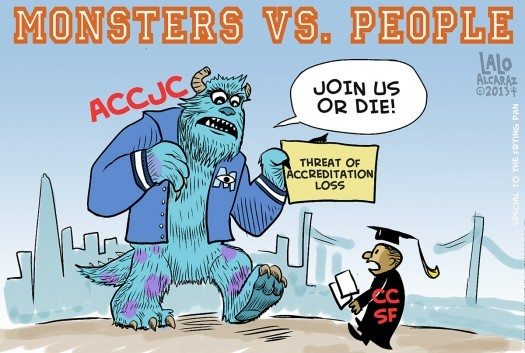
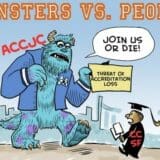
To appreciate the value of a community college education, consider the transformation of Shanell Williams.
By the time she was a teenager, Williams was constantly getting into trouble on the streets of San Francisco’s Fillmore District. Her abuse of drugs and alcohol, along with a difficult family life, would lead her into the juvenile justice system, drug treatment centers and foster homes.
“I was a juvenile delinquent,” she admits.
Today Williams, now 29, hardly resembles that troubled youth. She is a hard-working student at City College of San Francisco, taking urban studies courses and hoping to transfer to Stanford University or the University of California at Berkeley. She has served as president of the student council at CCSF’s Ocean campus and was elected to be the student representative on CCSF’s Board of Trustees.
“Community college has helped give me a pathway to higher education,” she says.
That pathway may soon be closing.


A few years ago, the Los Angeles Times began a practice of selling ads on the front pages of its sections. It was a slow build, with a preliminary announcement in 2007 and, two years later, it actually began to happen. Reaction from readers was not positive. The continued practice is still not exactly popular. At times, it’s clear these things are ads, while in other circumstances, they are designed to look like news articles.
Whether this piece falls into that new tradition, I’m not sure. The “article” was written by Paresh Dave, and tells us about Riddell’s new InSite Impact Response System, a football helmet Riddell says will protect players against concussions. (The system uses sensors inside the helmet, which wirelessly relay to the sidelines data about potentially traumatic hits.) High schools are purchasing the helmets and offering them to parents for free or at a limited cost and,


As a member of the Jobs to Move America coalition, I was more than a little dumbfounded to read a blog post by Brandon Fuller promoting a study authored by three economists from UCLA and Cornell University that criticizes taxpayer investment in American-made buses. Fuller’s post appeared on The Atlantic‘s Cities website, which also tweeted: “@AtlanticCities: Subsidies require cities to buy American-made buses. Change that, and bus services can be cheaper”
Huh? The Jobs to Move America campaign offers a real-life rebuttal to the study’s theoretical arguments against American-made buses. Here are five reasons Fuller and the research he embraces are wrong:
1) The best use of American taxpayers’ money is buses Made in America.
Fuller’s argument that sending taxpayer dollars overseas is a better investment than buying American-made buses simply does not add up. Why?
» Read more about: Five Arguments for American-Made Buses & How ‘The Atlantic Cities’ Got It Wrong »